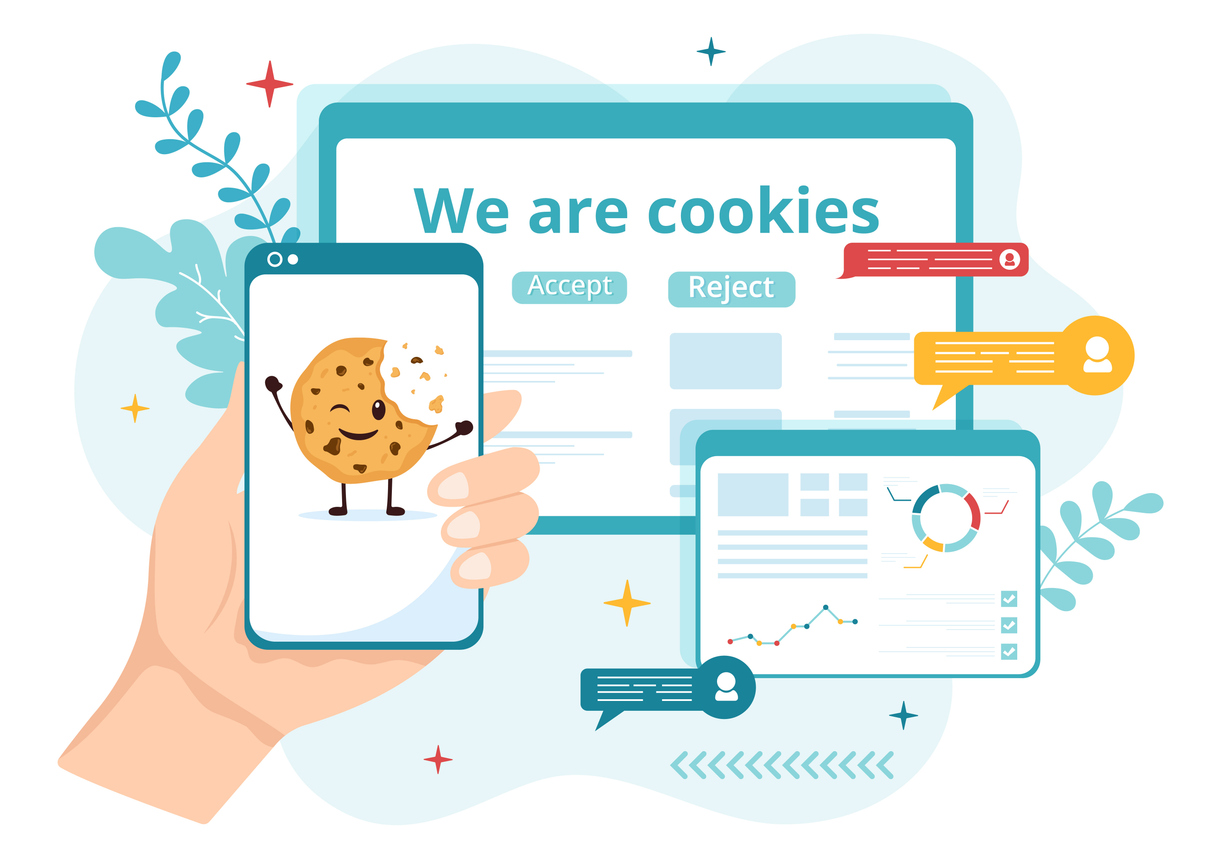With the latest release Snoobi has integrated Cookiebot™ settings into the Snoobi Analytics tracking code.
This background article explores the details and new features of the integration, the importance of combining cookieless analytics with cookie-based data, and why measuring the effectiveness of this approach is crucial in today’s privacy-conscious environment. It is an important read for any organization that uses web analytics.
Understanding Cookiebot™ and Snoobi
Cookiebot is a widely used consent management platform (CMP) that helps organizations comply with privacy laws like the General Data Protection Regulation (GDPR). It allows websites to obtain and manage user consent for tracking cookies, ensuring that no personal data is collected without explicit permission.
Snoobi Analytics, on the other hand, is a web analytics platform specializing in providing organizations with actionable insights into their website traffic. Known for its user-friendly interface and privacy-compliant features, Snoobi has long been a trusted partner for companies looking to understand visitor behavior and improve their online presence.
The latest integration combines these two tools, giving organizations a way to track and analyze visitor behavior while respecting privacy regulations. By syncing Cookiebot consent data with Snoobi Analytics, website owners can now differentiate between visitors who have consented to cookie use and those who haven’t, enabling more granular data collection and analysis.
The shift toward cookieless analytics
As privacy regulations become stricter, organizations have been forced to rethink their approach to data collection. Traditionally, cookies have been the backbone of web analytics, allowing organizations to track user behavior across websites, personalize content, and run targeted advertising campaigns. However, growing concerns over user privacy, alongside legal regulations, have driven the shift toward cookieless analytics.
Cookieless analytics refers to the collection of data without relying on cookies or other personal identifiers. This method uses anonymous data, such as the number of visitors to a website, the pages they view, and their interactions without tying this information to a specific individual. Cookieless analytics is crucial for organizations that want to continue gaining insights while staying compliant with privacy laws.
However, cookieless analytics by itself presents some challenges. Without the use of cookies, organizations may struggle to obtain detailed information on user journeys or measure the effectiveness of targeted campaigns. This is where the integration of consent-based cookie tracking comes into play.
The power of combining Cookiebot and Snoobi Analytics
The new use of Cookiebot data in Snoobi allows organizations to combine cookieless analytics with cookie-based data from consenting users. This hybrid approach provides a more comprehensive picture of website performance while adhering to privacy standards.
Key features:
- Consent-based data segmentation: With Cookiebot integrated, Snoobi can now segment data based on user consent. This means organizations can see data from users who have consented to cookies, separate from those who haven’t. This segmentation provides better insights into how different user groups interact with a website.
- Improved reporting accuracy: By blending cookieless data with cookie-based data where consent is given, Snoobi provides more accurate and detailed reports. Organizations can still track important metrics, like conversion rates and user engagement, without infringing on user privacy.
- Flexible analytics options: The integration offers flexibility in how organizations collect and analyze data. Website administrators can decide to focus on either cookieless analytics or integrate consented cookie data to improve their understanding of customer journeys.
- Privacy-first analytics: With the integration of Cookiebot, Snoobi ensures that all data collection practices comply with privacy regulations like GDPR. Snoobi Analytics will only collect data from cookies when users have explicitly opted in, creating a transparent and trustworthy system.
Why measuring the effectiveness of combined analytics matters
The effectiveness of combining cookieless analytics with cookies where consent is given lies in its balance of data depth and privacy. In a world where consumers are increasingly aware of their privacy rights, organizations need to respect these preferences while still gathering enough data to make informed decisions. Here’s why measuring the success of this approach is essential:
- Understanding the full spectrum of user behavior
When relying solely on cookieless analytics, organizations may miss out on critical information, such as personalized user journeys, which are typically tracked through cookies. However, if they only focus on data from consenting users, they might not get the complete picture of overall website traffic. By combining both cookieless and consented cookie data, organizations can measure the effectiveness of their analytics and gain a fuller understanding of how different user segments interact with their website. - Adapting to evolving privacy preferences
User attitudes towards privacy are constantly evolving, and organizations need to adapt to these changes. Measuring the effectiveness of combined analytics helps organizations stay in tune with these trends. By tracking how many users opt in or out of cookie tracking and comparing that data with overall user behavior, organizations can refine their marketing and data strategies to better align with user preferences. - Optimizing marketing campaigns
Marketers rely heavily on data to measure the success of their campaigns, and cookies play a significant role in this process. With the integration of Cookiebot into Snoobi, organizations can measure how well their marketing efforts are performing across both cookieless and cookie-based users. This provides a clearer view of which campaigns are driving results and where adjustments are needed. - Ensuring compliance without sacrificing analytic insights
One of the biggest challenges in using website data is balancing compliance with the need for insights. Measuring the effectiveness of combining cookieless and consent-based analytics helps organizations maintain compliance without sacrificing the depth of their data. This ensures that organizations can still access valuable insights while respecting the legal and ethical boundaries of data privacy. - Building user trust
Finally, measuring the effectiveness of this hybrid analytics approach can help organizations build user trust. By transparently respecting user consent and offering privacy-compliant analytics, organizations demonstrate that they prioritize customer privacy. This transparency improves trust and loyalty, which are crucial in today’s competitive internet landscape.

Conclusion
The integration of Cookiebot consent values with Snoobi Analytics marks a significant step forward for organizations striving to balance privacy with actionable insights. By combining cookieless analytics with consent-based cookie tracking, organizations can gain a deeper understanding of user behavior while maintaining compliance with privacy laws.
As privacy regulations continue to evolve, measuring the effectiveness of this combined approach will be crucial for organizations seeking to remain competitive.
With tools like Snoobi Analytics and Cookiebot leading the way, organizations can look forward to a future where data-driven decisions are made with both transparency and user trust at the forefront.
Snoobi Technology is not associated with Cookiebot or Usercentrics in any way.
Cookiebot is a trademark of Usercentrics A/S. Usercentrics A/S is registered in Denmark. Company reg. no.: 34624607.
 FI
FI

